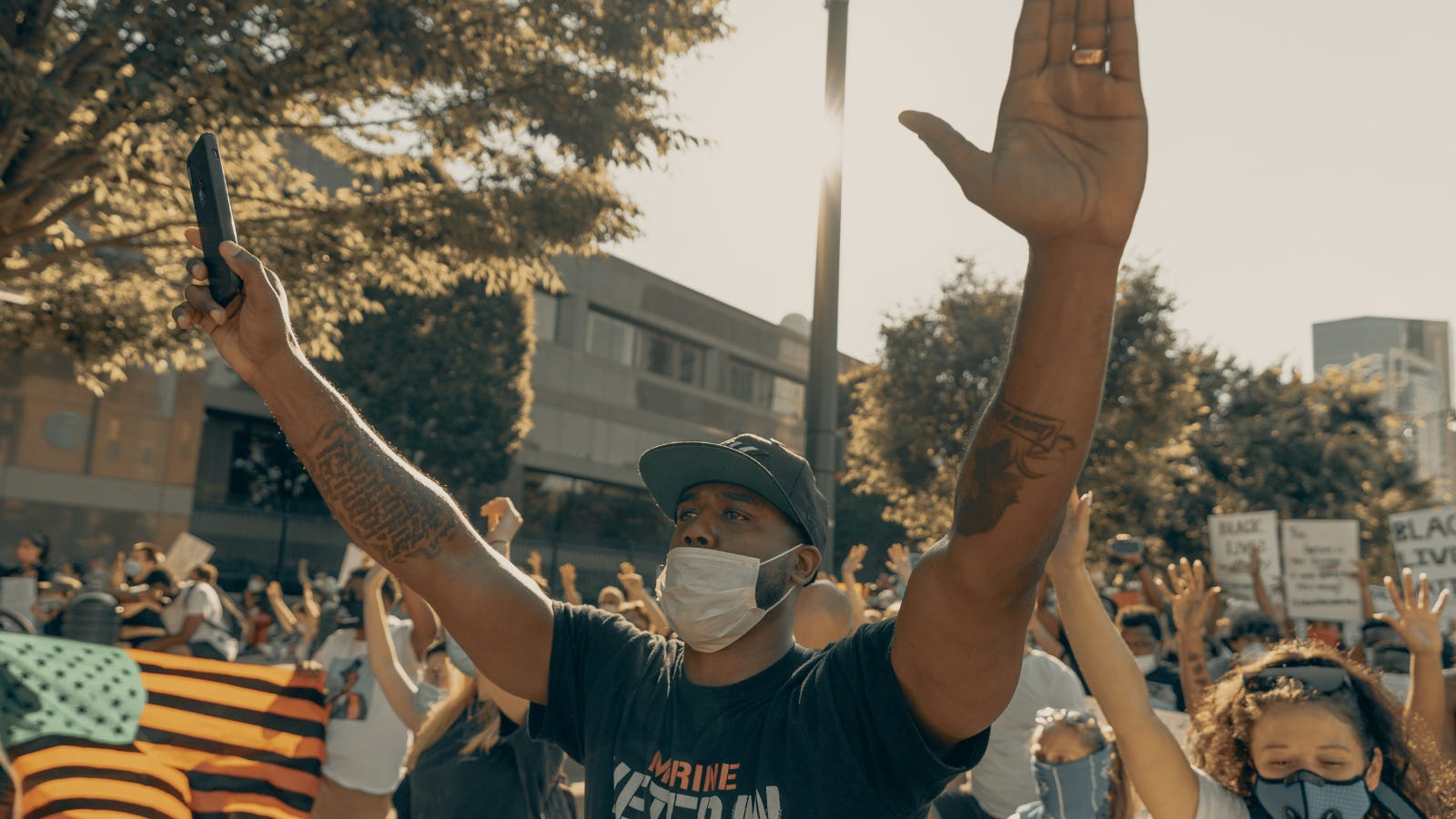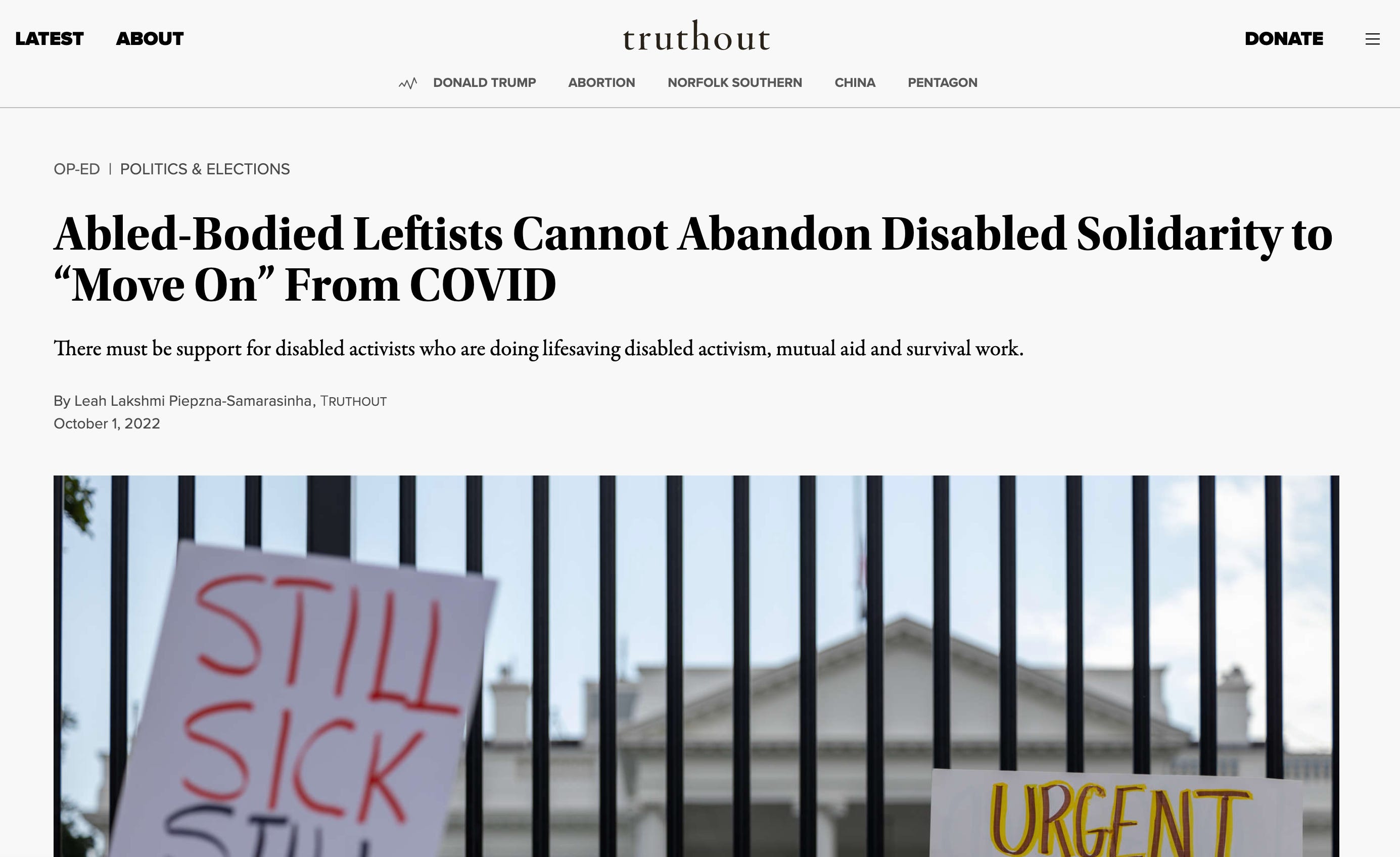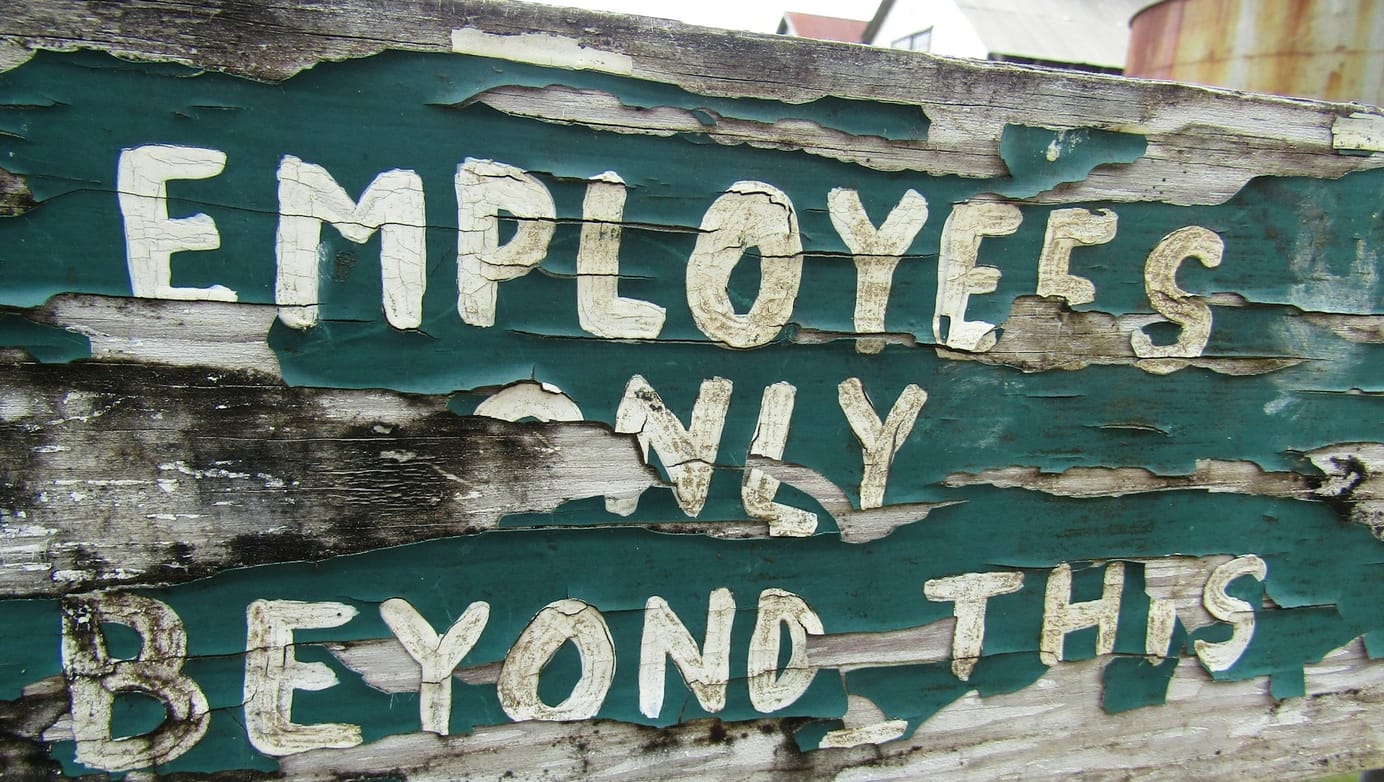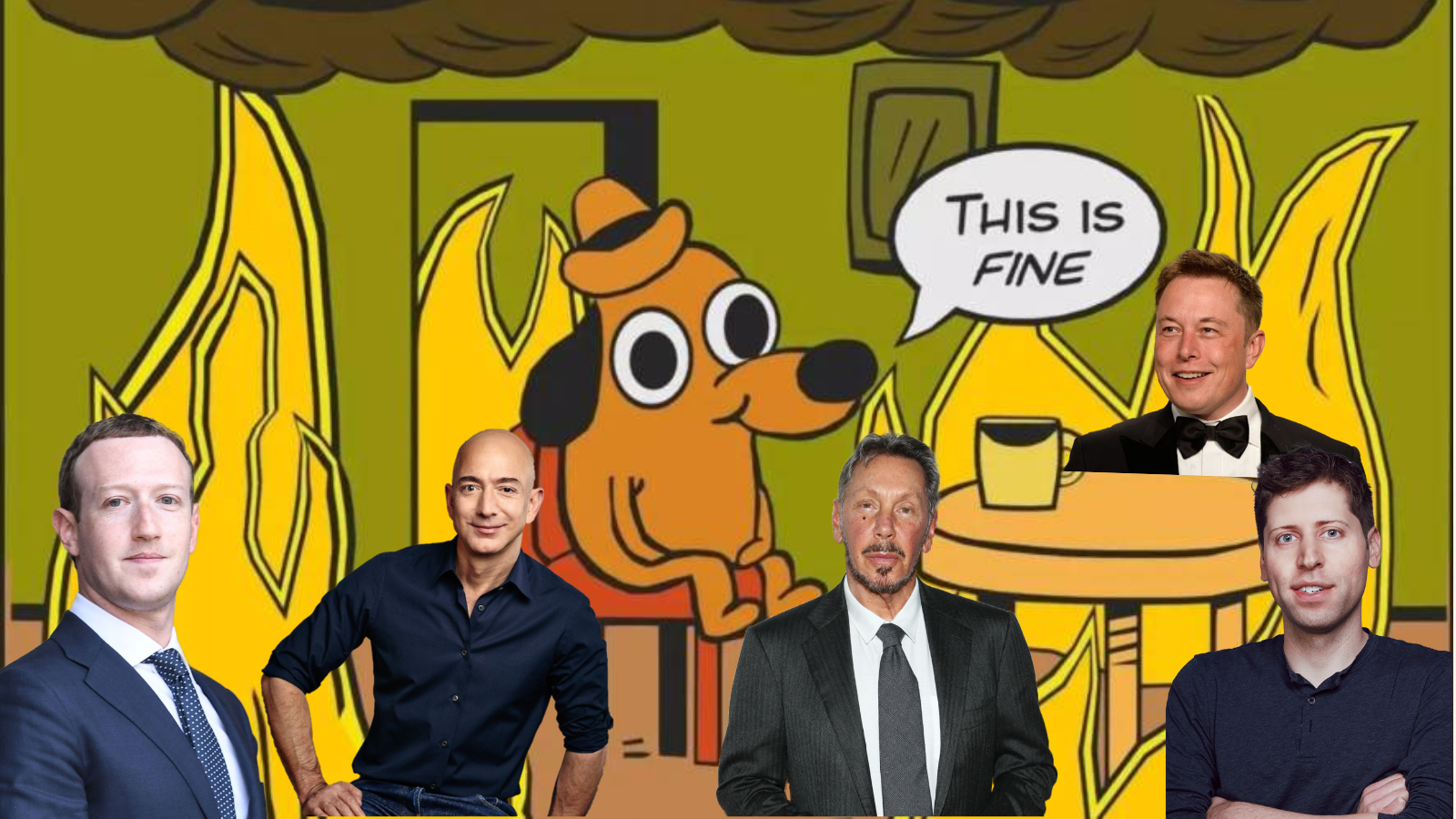Collective Grief → Community Healing
Part II: Community Care
Table of Contents
🤓 Bite-Sized Knurd: As the “return to normal” grows deafening, my fear is that we have not fully acknowledged and dealt with our grief from the last two years.
In Case You Missed It: 'I Am Because We Are': Prioritizing Community Care
Love is not pretending
Love is supporting the community
The March 2020 lockdowns kicked off a moment of uncertainty.
How serious is this virus? How is it going to impact me? How is it going to change our world?
We had no idea what our futures held. People around the world reacted differently to this uncertainty. For some, it brought them closer to others in recognizing the fragility of things. Others grew more isolated and fearful. No matter the reaction, we were all just trying to comprehend an extremely uncertain situation.
Over these past two and a half years, every single person has been impacted by covid. We lost loved ones, jobs, livelihoods, years of our lives, and the potential for what could have been. We all had our lives changed because of covid in some way.
That’s a lot to reckon with. There is grief in what was lost during these years. At no point in the last two years have we collectively acknowledged and dealt with our grief. There has been no opportunity for us all to come together to acknowledge what we went through.
As the “return to normal” grows deafening, my fear is that we have not fully acknowledged and dealt with our grief.
We Don’t Talk About Covid
Like the infamous Bruno, we’re hearing less and less about covid.
The proliferation of covid misinformation, anti-vaxxer rhetoric, and a lack of leadership by our institutions and government, has made any discussion of covid a challenge. It has become so polarizing that it’s now an identity issue for some people. Talking about covid can lead to fist fights on airplanes, friendship ruptures, and more.
More recently, there has been a growing effort to forget. Many are calling this The Great Forgetting or The Great Gaslighting.
The White House announced an “end to the pandemic” despite the WHO saying otherwise. The press barely mentions the 300-500 people still dying in the U.S. every day. And workplaces are removing any last vestige of pandemic working conditions.
So why exactly the push to forget?
It’s simple. The first two years of the pandemic were hard…like really hard!
Many people choose to forget because remembering is too hard. People suffered in countless ways from covid and its aftershocks. It’s no wonder that people want to move on from it. Holding that kind of grief can be incredibly painful.
We are all still in the middle of processing what really happened. And that kind of grief can show up in surprising ways. There’s a reason public outbursts have increased. I cried at a Maggie Rogers concert. It happens. We are all dealing with our grief in different ways, but still in ways that impact each other.
Collective Grief → Community Healing

Sadly, this Great Forgetting is making it harder for us to process and heal from our collective grief. When there’s no place to put grief, it usually rears its ugly head when you least expect it.
If this post-covid world feels a little bit harder than the Before Times, it’s probably because it is. Our unprocessed grief is rearing its ugly head and having ripple effects. Anger, violence, depression, and substance abuse are all traits of unprocessed grief. And we are seeing a rise in all of these categories right now. It’s no coincidence and it’s a natural effect of years of a life-altering pandemic.
Many people try to move on and push past the grieving period because grief is a hard emotion to stick with, but that can often make it even harder. That’s why we need to turn to community for healing.
Luckily, we have each other. This particular grief is collective, even if we all experience it uniquely. It is in all of us which is why we must turn to community care to heal.
Community care is mental health care. We heal from grief together.
Next week we’ll get into how we can use community care to grieve, but for now, I hope that everyone is gentle to themselves and each other. We make the world we want by living in love.
I also highly recommend reading Leah Lakshmi Piepzna-Samarasinha’s Op-ed about COVID, social justice, and the disability community.
“I want to finish what we started. I want us not to abandon the revolutionary dream some of us touched and made in 2020-2021 — of a world where community care, mutual aid for collective survival and a refusal to obey are not just possible, they make up the bones of the new world.”

🌱 the roots of change newsletter 📚 Newsletter
Join the newsletter to receive the latest updates in your inbox.







